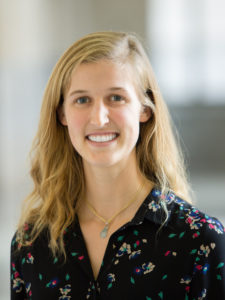Lyssa Freese is a Ph.D. candidate in the Department of Earth, Atmospheric, and Planetary Sciences working with Professor Noelle Selin. Lyssa’s research falls at the intersection of earth and social system sciences, in which she combines her graduate studies in Atmospheric Chemistry with her previous experience in environmental policy. Her current research aims to better understand the impact of energy policy on climate and air quality, with the aim of informing improved policy decisions. Her most recent research is about the impact of nuclear power plant shutdowns on the use of renewables and fossil fuels in the United States, and the subsequent air quality and climate impacts. Currently, she is working to create simplified mathematical models for understanding the local and global impact of point sources of pollution, taking both social and earth science constraints into account. This work will be applied to understand the air quality, climate, and health impacts of historical and future coal power plant development globally, accounting for the local social context. It will allow for better characterization of the impacts of shifting sources of pollution as historically polluting countries fund projects in developing countries. She is particularly interested in developing improved methods for modelling interactions between earth systems and human decision-making processes, accounting for varying spatial and temporal scales.
Prior to starting her Ph.D. at MIT, Lyssa worked for the China Environment Forum at the Wilson Center, a policy think tank in D.C., as well as for Green Camel Bell and the Rock Environment and Energy Institute, two environmental NGOs based in Lanzhou and Beijing, China, respectively. She completed her B.S. in Science, Technology, and International Affairs at Georgetown University’s School of Foreign Service, where she wrote an honors thesis on the role of environmental NGOs in public awareness of and policy approaches to air quality in China. In addition to her work on air quality and climate, Lyssa is active in her department’s diversity, equity, and inclusion efforts, co-founded the Atmospheric Chemistry Colloquium, and volunteers with the American Geophysical Union’s Thriving Earth Exchange.

